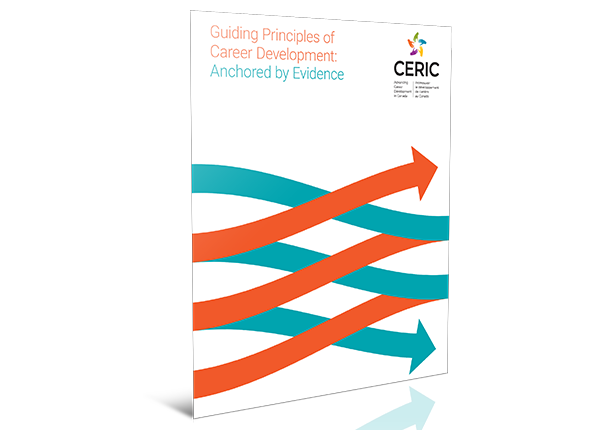
New resource outlines evidence base for CERIC’s Guiding Principles of Career Development
June 18, 2019
Super Saver registration now open: Cannexus20 National Career Development Conference
July 3, 2019CERIC will fund a new project that will produce a handbook for career practitioners that addresses their role in supporting or improving client mental health and potentially preventing or reducing the severity of mental illness. The project’s main objective is the dissemination of current research and thinking regarding career development practice and its impact on mental health combined with practical suggestions for enhancing this impact. Led by Life-Role Development Group Ltd., with the support of Simon Fraser University and the Career Education Association of Victoria (CEAV), Australia, this resource will provide the language and evidence that career development interventions can have positive mental health outcomes.
Project leaders Dave Redekopp and Michael Huston have found that practitioners are aware there is an important connection between career development and well-being and that practitioners want to learn more about the mechanisms supporting this connection. The connection is not usually addressed in career practitioner programs, nor are practitioners trained how to navigate these conversations within the boundaries of their role. Practitioners want to know how to address and support mental health concerns more effectively and ethically. Currently, practitioners often avoid discussing mental health concerns with clients because of fears that they may be working outside their boundaries.
Expected to be released in early 2020, the book – tentatively titled Career Development and Mental Health – will focus primarily on the mental health outcomes associated with career development, helping practitioners learn how their work already bolsters mental health and potentially intervenes with mental illness, how they can more effectively strengthen clients’ mental health, ways to measure mental health outcomes in their practices, and ways to communicate to stakeholders the vital role of career development in enhancing mental health. While the book’s core audience will be front-line practitioners in employment centres, schools, post-secondary institutions and career counselling offices, it will also be useful for managers, researchers, policymakers and academics.
Part of an international research collaboration, this project will fill several important gaps in the career counselling field and have broad reach with the CEAV adapting it for distribution in Australia. The project will:
- improve career development practice by showing practitioners how to ethically integrate mental health concerns into career development processes;
- improve the morale of career development practitioners by virtue of seeing the mental health impact of their work;
- improve cross-service communication between career development service providers and mental health service providers;
- improve career development practitioners’/administrators’ ability to make the case for the value of their service;
- improve sustainable mental health of Canadians via career development practice that addresses core issues rather than only symptoms;
- provide the research synopsis needed to promote policy change regarding the career development and mental health connections; and
- provide a model and research synopsis upon which career development researchers can build an evidence base.
The book will complement CERIC’s Career Services Guide: Supporting People Affected by Mental Health Issues, a resource that has been downloaded nearly 8,000 times to date. The guide offers a lens for understanding people affected by mental illness and practical strategies career practitioners can take to help clients meet their full employment potential.
CERIC provides funding and other support to develop innovative career development resources. Individuals and organizations are welcome to submit project proposals for career counselling-related research or learning projects. This latest project aligns with several of CERIC’s five priority funding areas, including career practitioning with social and economic impact; new emerging career development theories and career management models; and impact of career services on policy and programs.

